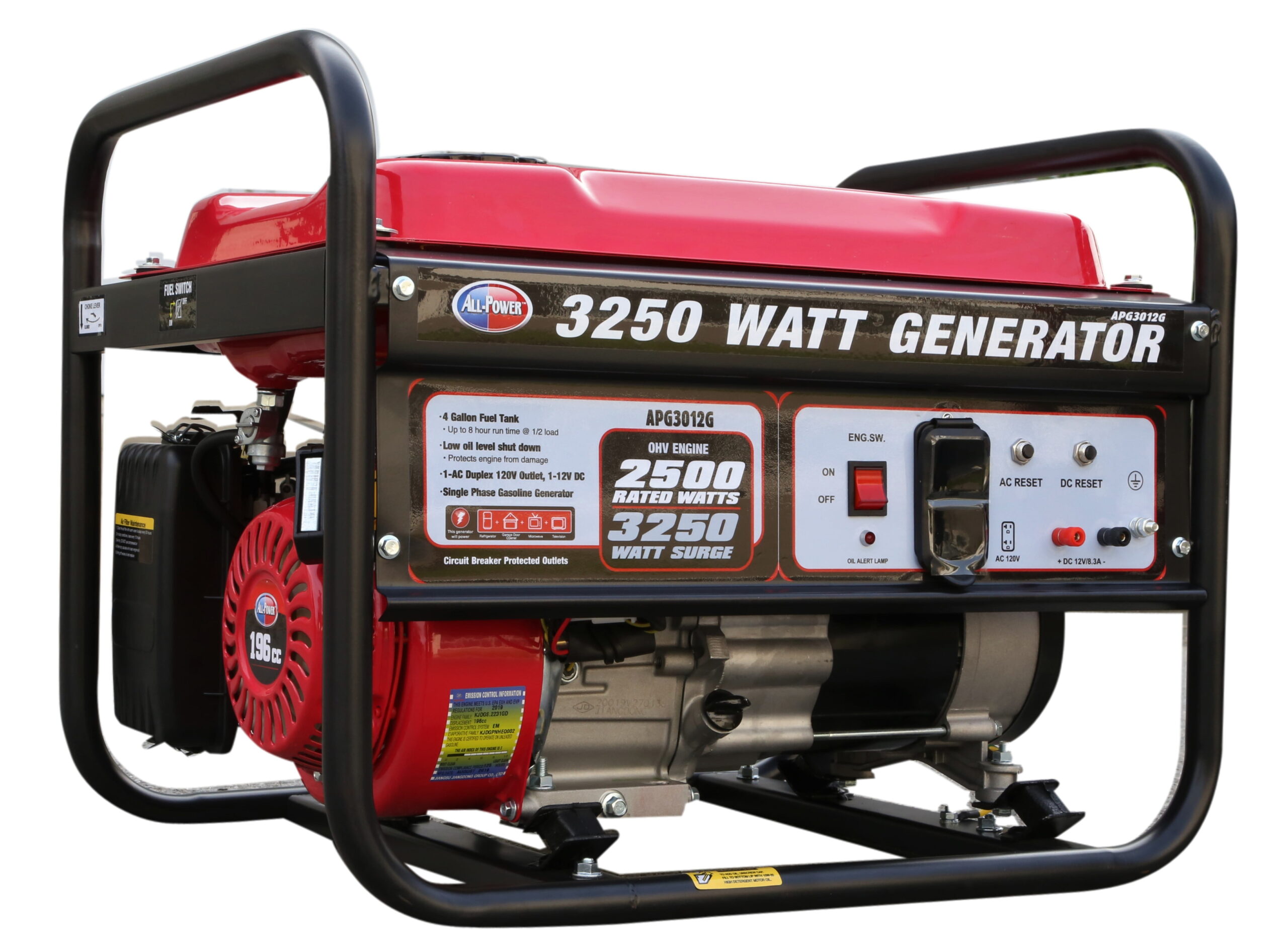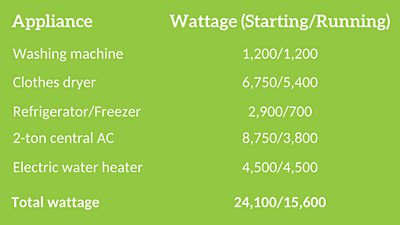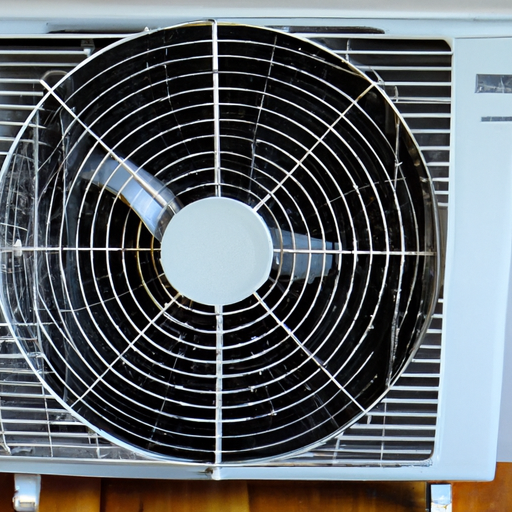Are you wondering what size generator you need to power a 2.5-ton AC unit? Look no further! In this article, we will explore the factors involved in determining the appropriate generator size for your cooling needs. Whether you’re planning for a camping trip or preparing for a power outage, understanding the right generator capacity is crucial to keep your AC running smoothly. So, let’s dive in and find out the perfect generator size for your 2.5-ton AC unit!
Factors to Consider
Power Requirements of the AC Unit
When choosing a generator for your 2.5 ton AC unit, it is essential to consider the power requirements of the unit. AC units come in different sizes and capacities, and they require a certain amount of power to operate effectively. To determine the power requirements of your AC unit, you need to check the manufacturer’s specifications or consult with a professional. The power requirement is typically measured in watts, which will be crucial in selecting the right generator size.
Starting vs Running Watts
Another important factor to consider is the difference between starting watts and running watts. Starting watts refer to the initial surge of power needed to start the AC unit, while running watts represent the power consumption during normal operation. AC units often require a significantly higher amount of starting watts than running watts. It’s crucial to consider both of these values when choosing a generator to ensure that it can handle the power demands of your AC unit.
Voltage and Phase
The voltage and phase requirements of your AC unit are essential considerations when choosing a generator. AC units usually require either 120V or 240V of power, and generators come in various voltage options. Additionally, AC units may require either single-phase or three-phase power. It is crucial to match the voltage and phase requirements of your AC unit with the generator to ensure compatibility and proper functioning of the unit.
Efficiency of the Generator
The efficiency of the generator is also an important factor to consider. A more efficient generator will ensure that you get the most out of each gallon of fuel, minimizing fuel consumption and reducing costs in the long run. Efficiency is often measured in terms of fuel consumption per hour, and reliable generator manufacturers provide this information in their product specifications. Choosing a generator with good efficiency will not only save you money but also contribute to a more sustainable and environmentally friendly operation.
Calculating Power Requirements
Determine the AC Unit’s Power Consumption
To calculate the power requirements for your 2.5 ton AC unit, you need to determine its power consumption. You can find this information in the product specifications provided by the manufacturer. Look for the power consumption in watts or amperes. If the power consumption is given in amperes, you can convert it to watts by multiplying it with the nominal voltage of your AC unit.
Calculate the Starting Watts
Once you have determined the power consumption, you need to calculate the starting watts required by your AC unit. AC units typically require two to five times their running watts as starting watts. Multiply the running watts by the appropriate factor to calculate the starting watts. Keep in mind that starting watts are crucial as they account for the initial power surge required to start the AC unit.
Calculate the Running Watts
To calculate the running watts, you can simply use the power consumption of your AC unit. This value represents the power required to keep the AC unit running once it has started. Make sure to use the nominal voltage of your AC unit if the power consumption is given in amperes.

Choosing the Right Generator Size
Consider the Starting Watts
When selecting the right generator size for your 2.5 ton AC unit, it is essential to consider the starting watts required by the unit. The generator should be capable of handling the initial power surge without overloading. Make sure to choose a generator with a starting wattage capacity that is equal to or greater than the starting watts calculated for your AC unit.
Determine the Running Watts
In addition to starting watts, you must also consider the running watts required by your AC unit. The generator should be capable of providing a continuous power supply to sustain the operation of your AC unit without any interruptions. Ensure that the generator’s running wattage capacity matches or exceeds the calculated running watts of your AC unit.
Sizing Guidelines for Generators
To determine the appropriate generator size for your 2.5 ton AC unit, you can refer to sizing guidelines provided by generator manufacturers. These guidelines will take into account the starting and running watts required by your AC unit and recommend a generator size that can reliably meet those requirements. Following the manufacturer’s guidelines will help ensure that you choose a generator of adequate size to power your AC unit effectively.
Generator Options
Portable Generators
Portable generators are a popular option for providing power to a 2.5 ton AC unit. These generators are designed to be easily transported and offer versatility in terms of usage. Portable generators typically run on gasoline or diesel fuel, making them suitable for outdoor use. They come in different sizes and capacities, allowing you to find a portable generator that suits your specific power requirements.
Inverter Generators
Inverter generators are another option to consider when choosing a generator for your AC unit. These generators are known for their quiet operation and fuel efficiency. Inverter generators produce clean and stable power, making them suitable for sensitive electronic devices like AC units. They often have advanced features such as automatic throttle control and fuel-saving modes, providing added convenience and energy savings.
Standby Generators
If you want a more permanent solution for powering your 2.5 ton AC unit, standby generators are worth considering. Standby generators are installed outside your home or business and can automatically detect a power outage, starting up within seconds to provide uninterrupted power. These generators are typically connected to a consistent fuel source like natural gas or propane, ensuring a constant power supply. Standby generators offer peace of mind during extended power outages and are capable of powering multiple appliances, including your AC unit.

Other Considerations
Available Fuel Source
When choosing a generator for your 2.5 ton AC unit, consider the availability and accessibility of the fuel source required by the generator. Different generator types may run on gasoline, diesel, natural gas, or propane. Ensure that you have a reliable source of the chosen fuel type to keep the generator running during power outages or emergencies.
Noise Level
The noise level of the generator is an important consideration, especially if you plan to use it in a residential area or during camping trips. Portable and inverter generators are generally quieter compared to conventional generators, making them more suitable for noise-sensitive environments. If noise is a concern, consider choosing a generator with a lower decibel rating.
Portability
Depending on your needs, the portability of the generator may be a factor to consider. Portable and inverter generators are designed with portability in mind, featuring handles or wheels for easy transportation. Standby generators, on the other hand, are intended for permanent installation in a fixed location. Consider the portability requirements based on where and how you plan to use the generator.
Budget
Lastly, it is important to consider your budget when choosing a generator for your AC unit. Generators can vary significantly in price depending on their size, features, and brand. Determine a budget that you are comfortable with and look for generators that offer the best value for money. Remember to factor in the long-term costs, including fuel consumption and maintenance, when evaluating the overall affordability of the generator.
In conclusion, selecting the right generator size for your 2.5 ton AC unit requires considering various factors such as power requirements, starting versus running watts, voltage and phase compatibility, generator efficiency, available generator options, fuel source, noise level, portability, and budget. By taking all these factors into account and following the guidelines provided by generator manufacturers, you can choose a generator that will reliably power your AC unit and meet your specific needs.







